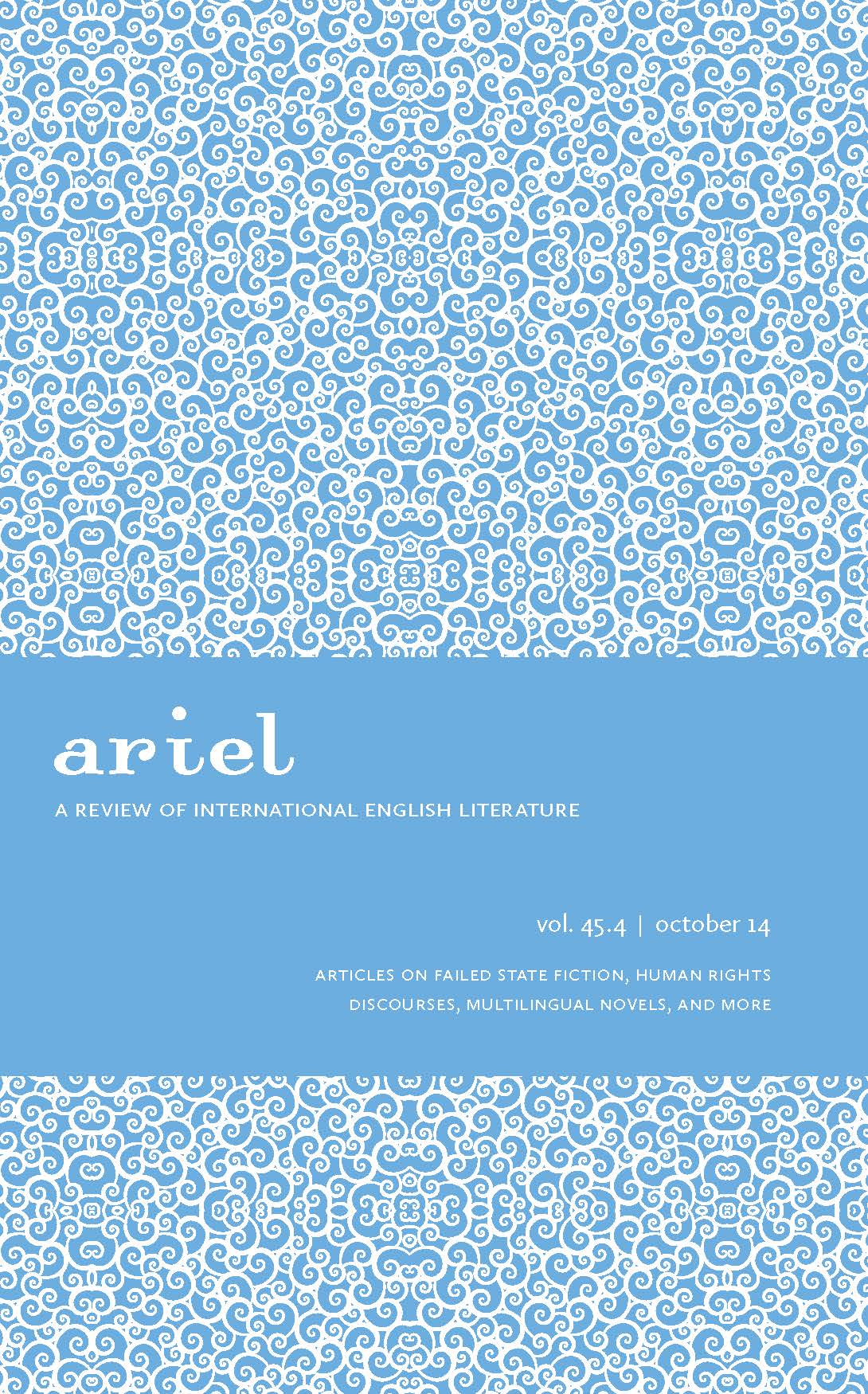'Let Us Begin with a Smaller Gesture': An Ethos of Human Rights and the Possibilities of Form in Chris Abani's <i>Song for Night</i> and <i>Becoming Abigail</i>
Keywords:
Chris Abani, human rights, child soldiers, sex trafficking, literary humanitarianism, novella, lyric voiceAbstract
This essay intervenes in current debates over human rights-oriented approaches to literature through a reading of Chris Abani's two novellas. As opposed to critics who want either to embrace or unmask human rights in literature, we argue that Abani mediates between these two poles through close attention to the ways in which literary form and aesthetic can craft a shared ethos between reader and text. In depicting the short lives of a child soldier and sex trafficked young girl, he emphasizes the limits of the law: the gap between the human subject and the legal person whose legal claims are recognizable. At the same time, his narratives are not sentimental, and they challenge readers to extend a recognition of shared humanity across easy divides of right or wrong behavior. If, as Abani posits, we cannot become fully human without the courage to unmask ourselves, then too the endeavor of human rights must submit to a similar unmasking (of its foundational paradoxes, its limitations, its pretentions, its complicities) precisely in order to live into, to embrace, the fuller manifestation of justice toward which it gestures. More specifically, we examine the interplay of lyric and narrative voices within the context of the novella in order to show how Abani deploys temporal and aesthetic constructions to respond to the limits within normative human rights (legal instruments and official discourses). This delicate balance of lyric and narrative, instead of calling upon the reader's responsibility toward the human rights violations he depicts and fostering literary humanitarianism (which has been extensively critiqued as paternalistic by scholars such as Slaughter and Anker), generates a more complicated ethos of reciprocity between reader and text.Downloads
Additional Files
Published
2014-11-26
Issue
Section
Articles


